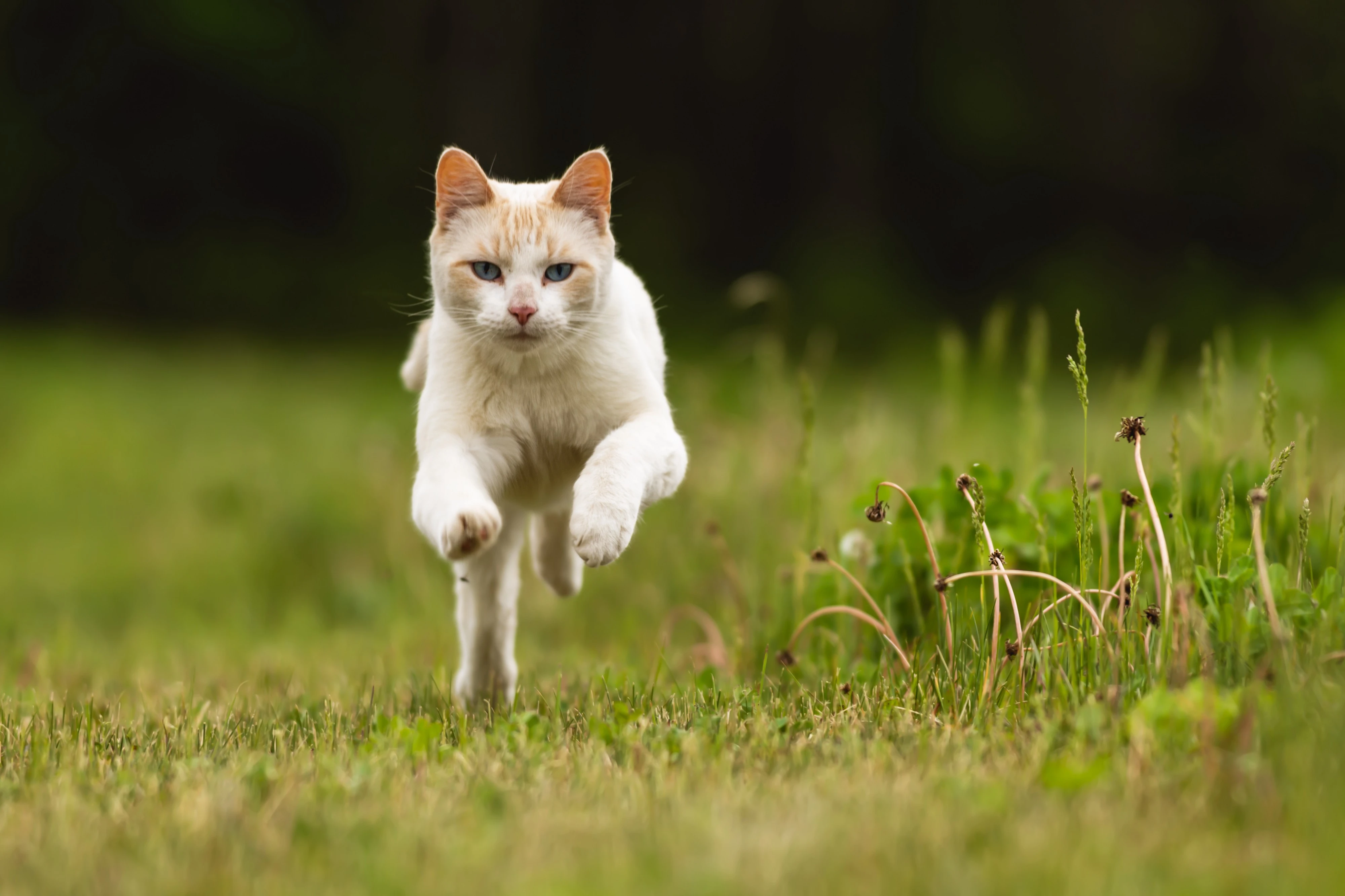Cats often leave their homes, and many never return. Animals leave even when well cared for, and owners do not know the reason why such situations occur. They spend a lot of time thinking and looking for their pets, but many times without success and return.
To reduce the risk of such cases, it is necessary to discover the places that cats visit after they leave their house and why they do so.
There are several different reasons that can cause your cat to run away from home, and the most common is the time of year when they are intensively looking for a mate, a curious cat who wants to explore the environment or one who is looking for independence.
1. Mating Time
A cat looking for a partner will surely find a way out of the house. All it takes is a moment of inattention, an open window or door that the cat will use to escape. When their desire is at its peak, the cat’s main goal is to find a partner, and he will do everything to succeed in that plan.
Because cats mature sexually very early, you need to be vigilant from the fourth or fifth month of their lives. In case you have a male, the reasons for running away will be the same. If he smells a female nearby, he will go looking for them.
To avoid such situations, educate yourself in time and consult a veterinarian regarding sterilization or castration.
2. Exploration
Cats are naturally curious animals that love to discover new places. Exploring the environment takes them away from their home, and that group of cats includes those that have been neutered.
At some point, they may want to explore the neighborhood or notice other cats they want to meet. In this case, the cat usually returns home in a few hours or decides to be away from home for two to three days.
3. Independence
Independence is usually a human urge, but it is possible that the same desire occurs in cats. There are cats with extremely strong personalities who have very clear ideas about how they would like to live.

How Far Do Cats Roam?
If you let your cat walk outside freely, you must have wondered where she is going. The Cat Tracker Project was created to investigate the movements of domestic cats, and their behavior in the outside world.
The project includes a team of scientists, students, journalists and curious cat lovers, as well as the Museum of Natural Sciences of North Carolina and Movebank – an online database that collects information on the movements of various domestic and wild animals.
Project leader Roland Kays has said that nearly 100 million cats living in the U.S. can have a significant impact on bird and other animal populations but it is important to find out whether cats hunt more in urban areas or outside them.
Anthropologist Barbara King of William & Mary University of Virginia, who is an expert on feline behavior (but does not participate in this project), also believes that this is a great way to solve the puzzle of feline movement and eliminate existing doubts and prejudices.
How does the project work?
1. Interested owners are invited to equip their cats with GPS devices and thus enable tracking of their activities.
2. The owner buys or hires a GPS device and makes ammo that holds this device on the cat’s back.
3. The cat is allowed to do everything else and after at least 7 days of active use, the data from the GPS is sent to the central system and become lines – paths on the map 🙂
The data obtained in this way have several useful purposes.
People who normally deal with the protection of other animals can learn more about the predatory habits of cats, and cat owners can see what dangers cats face when they have complete freedom of movement.
For now, the project is operational in the United States, Australia and New Zealand.
Results Of The Study
The results of the GPS device showed the following:
- Cats are aware of the paths they follow, and do not get lost
- Most active cats regularly move away and well over 1 km from their house.
- Mileage” grows the more independent the cat is and the longer it has lived without a permanent home.
The most extreme example in the study was a male street cat that regularly roams an area of as much as 520 hectares, including urban and rural areas, with all the possible dangers you can imagine, from traffic to larger predators such as foxes and coyotes.
For more information on this study, visit Your Wild Life.
My Cat Left Home And Never Returned
There are many cases in which the cat did not return to the house after leaving the house. During the cat’s journey, she may have an accident or eat something poisonous after which he dies. Even in just a few hours outside the house, something unexpected can happen and your pet may not return home safely.
Although owners are always hoping and looking for their cat, the fact is that bad things are happening on the street and you need to be more careful in the future.
Look at your cat as an equal member of the family and protect her in every way so that she does not leave her home irretrievably.
For more information on this topic, check out our in-depth guide on how to get your lost kitty back home.

My Cat Regularly Runs Away From Home
Cats are known for their independence and stubbornness, and being away from home is completely natural for cats as is for humans. Cats do not like to be confined in 4 corners and need space to thrive.
However, if your cat is regularly running away from home and does not come back for prolonged periods of time, it may due to stress, attacks from other animals or humans, or maybe even other people feeding her.
Some of the causes for your cat running away from home are:
- Stress from time spent outside her familiar environment;
- Possible attack by another animal or human;
- Infection during the time she was outside due to contact with a sick animal
- Getting fed by other people in the nearby area
- Other excitements/interests/curiosities
Running away from home is also possibly expected after more cats arrive in the household.
However, there is no single answer to this question and usually needs to be looked on a case by case basis.
If there is a need for serious treatment, it is necessary to restrict the movement of such cats. During the treatment, the cat can be left in the veterinary clinic, with an agreement with the veterinarian.
If you think that the cat is sick, veterinary intervention is definitely recommended, even with a certain restraint and restriction of movement. After the cat recovers, let her “decide” where she wants to be.
Will My Cat Come Back Home?
There are many reasons why a cat wants to leave its house, at least for a while. In most cases, it comes back after a few hours or days. Cats know the way to their house very well, especially those who are used to being on the street.
If your cat grew up in a house and got used to living indoors, it doesn’t know its environment and neighborhood. Disorientation can then occur, and returning home could take much longer. When he returns, it is advisable to bathe the cat and check for fleas or other parasites.
If more than a day has passed and your cat does not return, prepare posters with her recent photo, physical description, address, or area from which she disappeared. Maybe someone in the neighborhood noticed her and you manage to get her home in time.
How To Prevent Cat Leaving The House?
Sometimes we are unaware of how a cat’s mind works and what its reasons are for running away from home. In order to prevent her from leaving and risk never returning to her home again, certain precautions need to be taken.
One of the most important items is certainly sterilization, i.e. castration if it is a male. This way you not only prevent running away from home during the mating season, but you can avoid too many cats and leaving them, which is a big problem all over the world today.
The usual way for a cat to escape from a house or apartment is through an open window. While cleaning the apartment or opening it for ventilation, you can forget about your pet to whom such a scene will attract attention. To avoid similar situations, it is best to buy a window safety net that is sold in all pet stores.
In addition to windows, front doors are also critical, so pay close attention to their closing after entering and leaving the house. The cat will use the open door to escape, and it will do so at a time when you will not be able to, nor be able to stop it. All family members must be responsible and follow the rules to protect the cat from running away.



Leave a Comment